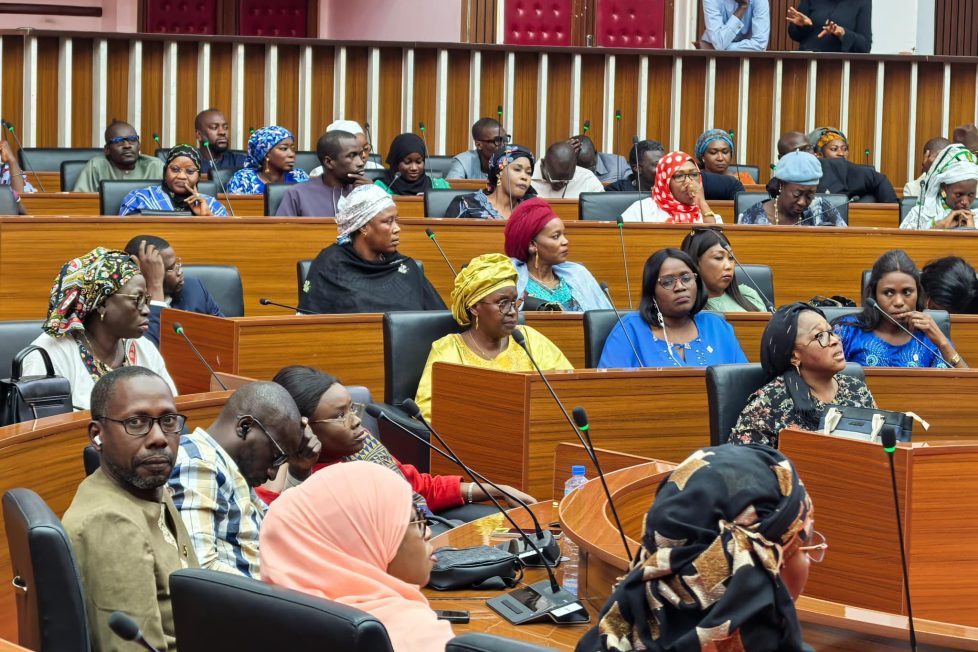The perfect return to sender

The parliamentary opposition decided to boycott the « Questions to the Government » session, which will unfortunately be postponed following the death of the General Khalifa of the Layènes. The meeting is scheduled again for Monday, but after the first exercises of this supposed exchange under this new regime, we can predict that invective, flat threats, insults, and smokescreens will once again have the upper hand. It’s sad to think this way about one of the cogs of the democratic system! But when everything is levelling down in a city, we can only expect from our consuls’ exchanges malnourished gossip, barroom trivia, and speeches steeped in inaccuracies.
Read the column – A great and worthy servant has left us
It is through the voice of MP Thierno Alassane Sall that opposition parliamentarians say they oppose the « repeated and deliberate violations of the Rules of Procedure of the National Assembly. » In the dock, all the fingers of the new opposition point at the President of the National Assembly, El Hadj Malick Ndiaye, accusing him of acting like a « camp supervisor, » flouting the balances in the representativeness and the serene functioning of Parliament. It is understandable that in a National Assembly where Pastef holds an overwhelming majority, mixing mechanical functioning, belligerent dynamics, and outrageous posturing, the opposition forces may find it very difficult to make themselves heard. If the Speaker of Parliament throws his weight behind interpreting the Rules of Procedure, promoting his allies and his government, and seeking favour with his party comrades, the balance is quickly upset. This destroys any democratic balance between the competing forces, turning the National Assembly into a sounding board for a party-state, instead of a courtroom where all voices are heard and all the country’s ills are averted.
Read the column – Letter to Hamidou Anne, captain of courage!
The total submission to the Executive that the opposition accuses the Senegalese Parliament of is enough to distort the democratic process. We are told that with the « Questions to the Government, » everything is being done to give Prime Minister Ousmane Sonko a platform to shoot at everything that moves, bash in the heads that stick out by a hair, and satisfy a militant base, still in the fervour of the first aftermath of a « revolution. » Instead of an exchange of ideas, what we’re seeing is a fair of insults and score-settling. With this new legislature, we’re sure to see ministers cornered by their own majority MPs lose their tempers and use surprising language. If we’re fighting so much in the same army, our enemies had better watch out.
The vice is so extreme in this desire not to create balance that in the speaking time allocated to the various protagonists, everything is done to ensure that the head of government has the latitude to quibble while his opponents share turns of speech of astonishing brevity. A little elegance would have helped to give a semblance of democracy and hints of lucid exchanges of ideas and arguments, but everything leads one to accept the idea that in Senegal, anyone holding an ounce of power or authority must crush and bring into line everything around him. Worse is the fate of those who hardly obey!
Read the column – The art of diverting public debate with counter-fires
The boycott of « Questions to the Government », along with the arguments that motivate the opposition, is an act to be encouraged. As long as we cannot agree and exchange ideas in a friendly manner, it is better to sever all ties for a while. And it would not be a crime of lèse-majesté to send such a signal to Prime Minister Sonko. His appearances in Parliament were punctuated by acts of defiance against the authorities of the time, and he used his interventions only to serve his own political gain and interests. If opponents, after two such exercises, find that the rules of the game are rigged from the start, they are free to draw inspiration from the string of anti-conformist works and resistance actions left by the leader of the Pastef party during the 13th Legislature. He will have requested the establishment of a parliamentary commission of inquiry while refusing to defer to it. He will have boycotted interventions by members of the government. He will have fought with a deputy, « Douma nako » (I beat him) cannot be forgotten so quickly! He will have served up murderous rants without embarrassment. If in an Assembly like the Senegalese Parliament, MPs can hardly open their mouths, there is no point in debating. Life here below is a beautiful fair of equivalent exchanges, the returns to the sender have the charm of bearing only all the defects and qualities of the senders.
PS: Senegal lost, in less than a day, the General Caliph of the Layènes, Mouhamadou Makhtar Laye, and the President of the Constitutional Council, Judge Mamadou Badio Camara. I pay tribute to their memory and salute these two great Senegalese who, each in their own way, contributed to making this land the island of stability that it is.
By Serigne Saliou DIAGNE / saliou.diagne@lequotidien.sn

